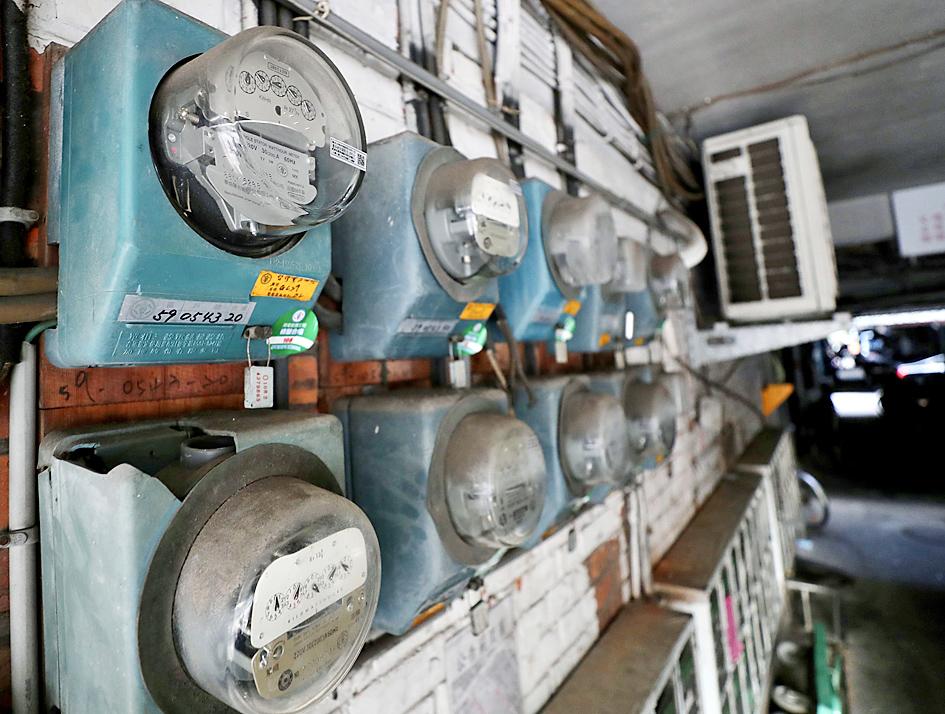The No. 2 reactor at the Guosheng Nuclear Power Plant in New Taipei City’s Wanli District (萬里) experienced a malfunction that triggered an automatic shutdown early yesterday morning, Taiwan Power Co (Taipower, 台電) said.
The exact cause of the incident is still being investigated, but there is no risk of a radiation leak, the state-run utility said.
“While we are still investigating the exact cause, the automatic shutdown was safely executed and there is no danger from radiation,” Taipower spokesman Chang Ting-shu (張廷舒) said.

Photo: CNA
The malfunction occurred at 6:33am, triggering an emergency shutdown, taking 985 megawatts of power offline, Chang said.
The control rods have now been fully lowered into the reactor and Taipower would apply with the Atomic Energy Council for the unit to be restarted as soon as the malfunction is resolved, he said.
However, it would take three days before the reactor reaches maximum output, Taipower said.
“The malfunction took place early in the morning during low power demand and it was possible for us to dispatch our reserve capacity immediately, leading to no loss of power [to the grid],” Chang said. “With the nation’s hydropower system full after the recent rains, we should be able to cope while the Guosheng Nuclear Power Plant’s No. 2 reactor remains offline.”
The operating reserve ratio is expected to remain “green,” or above 10 percent, in the coming days, but might dip into “yellow” territory, or 6 to 10 percent, during nighttime peak periods before the reactor is restarted, Taipower said.
As the mercury spiked close to 38°C, the nation’s electricity consumption reached 38.84 gigawatts (GW) at 1:50pm yesterday, with an operating reserve ratio of 10.17 percent, the company said.
The No. 1 reactor at the Guosheng power plant went offline on July 1 after the facility ran out of space to store spent nuclear fuel.
The No. 2 reactor is expected to keep generating power until March 2023, when its operating permit expires, Taipower said.

Sweeping policy changes under US Secretary of Health and Human Services Robert F. Kennedy Jr are having a chilling effect on vaccine makers as anti-vaccine rhetoric has turned into concrete changes in inoculation schedules and recommendations, investors and executives said. The administration of US President Donald Trump has in the past year upended vaccine recommendations, with the country last month ending its longstanding guidance that all children receive inoculations against flu, hepatitis A and other diseases. The unprecedented changes have led to diminished vaccine usage, hurt the investment case for some biotechs, and created a drag that would likely dent revenues and

Global semiconductor stocks advanced yesterday, as comments by Nvidia Corp chief executive officer Jensen Huang (黃仁勳) at Davos, Switzerland, helped reinforce investor enthusiasm for artificial intelligence (AI). Samsung Electronics Co gained as much as 5 percent to an all-time high, helping drive South Korea’s benchmark KOSPI above 5,000 for the first time. That came after the Philadelphia Semiconductor Index rose more than 3 percent to a fresh record on Wednesday, with a boost from Nvidia. The gains came amid broad risk-on trade after US President Donald Trump withdrew his threat of tariffs on some European nations over backing for Greenland. Huang further

CULPRITS: Factors that affected the slip included falling global crude oil prices, wait-and-see consumer attitudes due to US tariffs and a different Lunar New Year holiday schedule Taiwan’s retail sales ended a nine-year growth streak last year, slipping 0.2 percent from a year earlier as uncertainty over US tariff policies affected demand for durable goods, data released on Friday by the Ministry of Economic Affairs showed. Last year’s retail sales totaled NT$4.84 trillion (US$153.27 billion), down about NT$9.5 billion, or 0.2 percent, from 2024. Despite the decline, the figure was still the second-highest annual sales total on record. Ministry statistics department deputy head Chen Yu-fang (陳玉芳) said sales of cars, motorcycles and related products, which accounted for 17.4 percent of total retail rales last year, fell NT$68.1 billion, or

HSBC Bank Taiwan Ltd (匯豐台灣商銀) and the Taiwan High Prosecutors Office recently signed a memorandum of understanding (MOU) to enhance cooperation on the suspicious transaction analysis mechanism. This landmark agreement makes HSBC the first foreign bank in Taiwan to establish such a partnership with the High Prosecutors Office, underscoring its commitment to active anti-fraud initiatives, financial inclusion, and the “Treating Customers Fairly” principle. Through this deep public-private collaboration, both parties aim to co-create a secure financial ecosystem via early warning detection and precise fraud prevention technologies. At the signing ceremony, HSBC Taiwan CEO and head of banking Adam Chen (陳志堅)